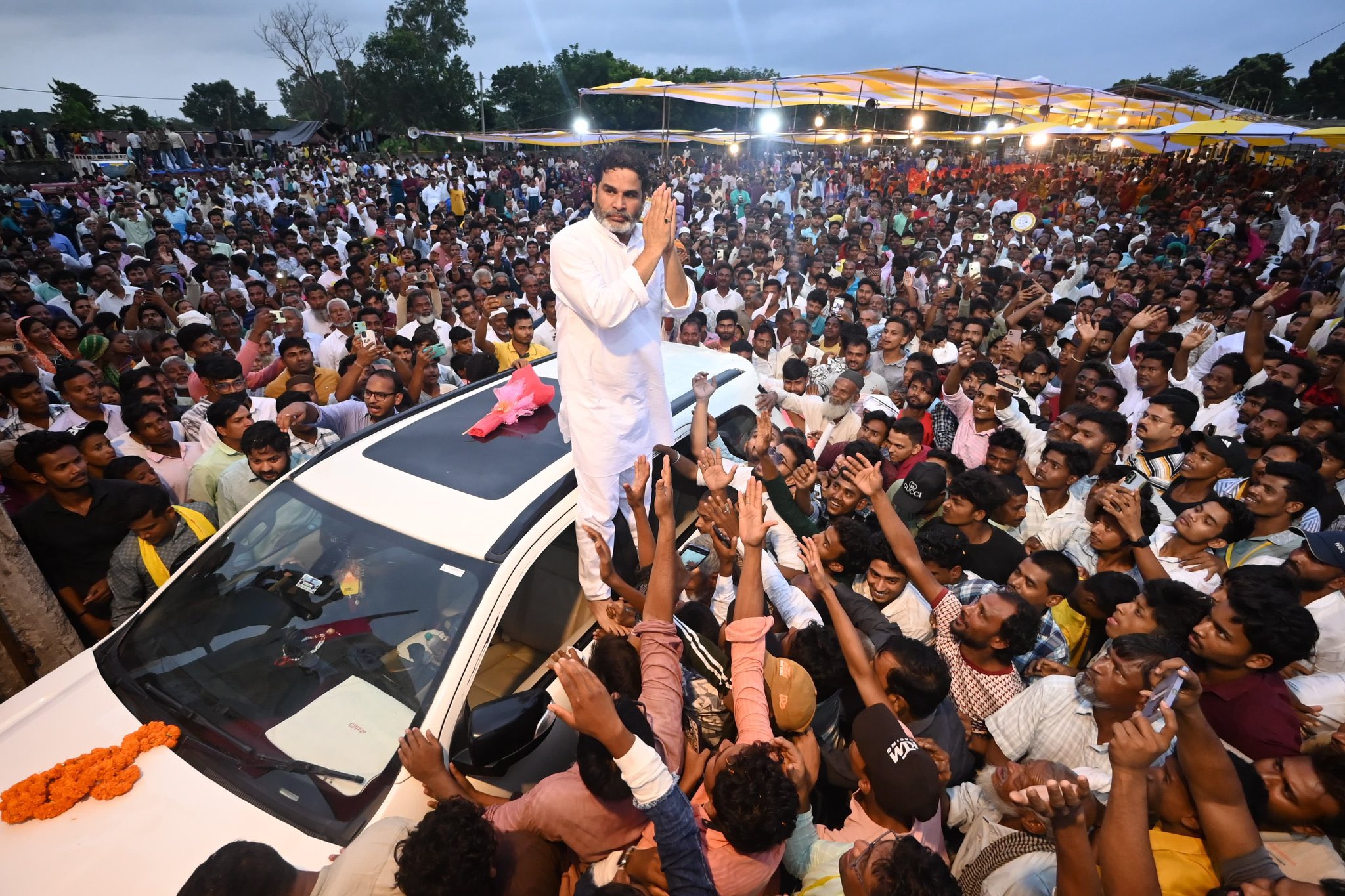Prashant Kishor Finds His Voice in the Streets of Patna, Again
In this searing July heat, amid slogans, barricades, and baton-wielding police, a familiar figure stood tall and defiant outside Bihar’s Vidhan Sabha -- no longer behind the scenes but in the thick of the storm. Prashant Kishor, the man who once masterminded electoral victories from war rooms for India’s most powerful leaders, had taken to the streets.
But this time, he isn’t just strategizing a campaign -- he is leading one that many analysts say will reshape Bihar's legislature and who knows, its destiny, in just a few months from now.
 |
| Image Source: Pk_youthbrigade |
The founder of Jan Suraaj was seen at the heart of a tense confrontation with Bihar Police, marching with thousands of supporters to deliver a memorandum to Chief Minister Nitish Kumar -- the very leader Kishor once helped retain power in 2015. Now, Kishor accused the same government of betrayal. He alleged it reneged on a promise to provide ₹2 lakh each to 94 lakh poor families in the state. Not a single rupee, he claims, has been delivered.
When the march was blocked and young supporters of his party were allegedly struck by police, the confrontation escalated.
“You have hit an unarmed man. Now try hitting me,” Kishor said, seated defiantly on the road. “Either the Chief Secretary gives us in writing when the demands will be answered or we don’t move.” In that moment, the carefully curated strategist of yesterday gave way to a street-fighting politician, determined to make governance accountable -- or unmanageable.
To understand the weight of this confrontation, it’s important to recall who Prashant Kishor is -- and what he once represented.
Born in Sasaram, Bihar, to a middle-class Brahmin family, Kishor began his career in public health, working in UN-funded development programs for nearly a decade before entering India’s political bloodstream.
His break came in 2011, when he designed Narendra Modi’s 2012 Gujarat Assembly re-election campaign -- and later, through Citizens for Accountable Governance (CAG), played a crucial role in BJP’s landslide 2014 Lok Sabha victory.
Kishor’s fingerprints are on some of modern India’s most successful election campaigns. From Nitish Kumar’s Mahagathbandhan win in 2015, to Amarinder Singh’s Punjab triumph in 2017, Jagan Mohan Reddy’s Andhra sweep in 2019, Arvind Kejriwal’s Delhi hat-trick in 2020, and Mamata Banerjee’s Bengal fightback in 2021 -- Kishor helped shape the electoral fortunes of political giants across the ideological spectrum.
In each case, his tools were data, ground intelligence, message control, and mobilization.
But in 2021, after back-to-back wins in Bengal and Tamil Nadu, Kishor walked away.
“I’ve had enough. Time to move on,” he told several news outlets. A year later, he announced Jan Suraaj -- a grassroots campaign in Bihar aimed at political reform and participatory governance. The “Baat Bihar Ki” campaign evolved into a 3,000 km padyatra, and eventually into the Jan Suraaj Party, which was formally launched on October 2, 2024.
Kishor’s current crusade is against a culture of complacency, of official opacity, and of what he calls the “death of accountability.” In a state long accustomed to transactional politics, caste equations, and patronage-based governance, Kishor’s pitch -- built around the idea of clean, development-centric politics -- is a novel if uncertain experiment.
That’s what made Wednesday’s confrontation significant and compelled us to take note of the man's movement and his defiant nature against a hundred odds.
Kishor accused the state of hiding behind force and ignoring democratic grievance. “This is not just about one memorandum,” he said. “This is about the right of citizens to demand answers. If 50 lakh children are working in the heat as laborers and the government doesn’t even look up, then the street is the only option left.”
The government, perhaps sensing the optics, backed down. The Chief Secretary eventually met with a Jan Suraaj delegation and promised a response within a week. But Kishor has already served notice -- if the promises fall flat again, they will return, in greater numbers.
What makes Kishor’s movement different is his own journey -- from designing the choreography of political power to confronting it head-on.
Few people understand better than him how governments calibrate public response, how state machinery is deployed, how narratives are spun. And so when he says “we’ll make it difficult for this government to function,” it’s not a bluff. It’s a signal. It's a warning. It's forecast.
In a state where opposition space is fragmented, and the political discourse dominated by familiar caste arithmetic, Kishor is attempting to rewire the frame with outrage, slogans and with data. And not with compromise but with confrontation. And at great personal costs.
Skeptics argue that protest isn’t policy, and symbolism doesn’t always translate into votes. True. Jan Suraaj is still untested electorally. But as Kishor has demonstrated, political capital can be built outside polling booths -- on dusty roads, in front of barricades, beneath the public gaze.
With elections due in a few months, this could well be the first chapter in a deeper realignment. One that pits not just party against party, but insider against outsider, planner against practitioner. Kishor, once the anonymous power behind the throne, is now the man banging on its gates.
It is clear he’s not knocking -- he’s kicking the system of arrogance down.
